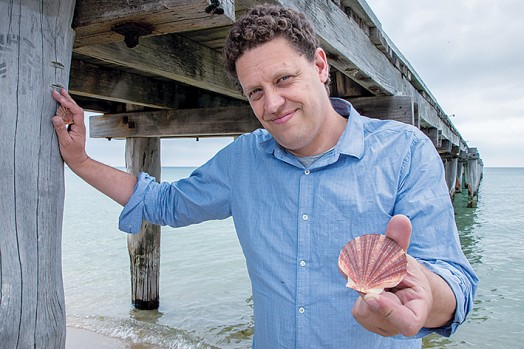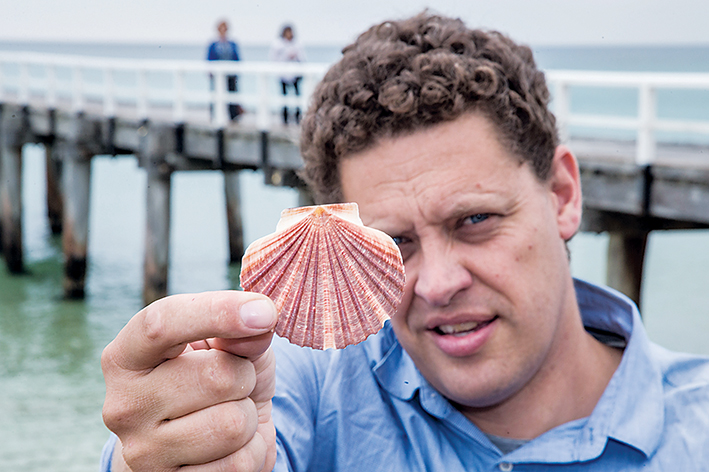
THE state government issued one licence for scallops to be hand-harvested in Port Phillip earlier this year, ending a 17-year ban on commercial harvesting, but one of the men who proved scallop viability continues to lobby for a second licence.
On 20 February 2014, government agency the Department of Environment and Primary Industries announced that Port Welshpool-based fisherman Bruce Collis and his company Vicfish Pty Ltd had won an auction for the licence.
Mr Collis paid $180,000 for the right to harvest 12 tonnes of scallops a year, with no more than two tonnes coming from any one of six sub-zones in Port Phillip.
The decision dismayed Seaford-based fisheries scientist, scallop diver and fisherman Grant Leeworthy, who heads Port Phillip Bay Scallop Dive Fishery Association and has been an abalone diver and aquaculturalist.
“Colleagues and I did two stock assessments in 2009-10 and 2012 at a cost of about $500,000 so it was a blow when the government announced it would issue just one licence and for such a small amount,” he said.
“We were never going to be able to bid for what we think is an uneconomic licence.”
Mr Leeworthy said Port Phillip’s scallop grounds could support harvesting of between 200 and 400 tonnes a year.
He appealed DEPI’s decision in the Supreme Court but it was dismissed, leaving him with a legal bill of $26,000.
“It was very disappointing as the issuing of one licence appears to contradict government competitive policy.”
The change of government last month has revived his ambition and he will again seek a second licence. He said Port Phillip could support four licences.
Mr Leeworthy said scallops were again in good numbers after the government banned scallop dredging in Port Phillip in 1997.
Mornington was the epicentre of the industry with dozens of scallop boats moored at the town’s pier and a processing factory in the light industrial area.
“There are good beds between Rye and Point Cook as well as around St Leonards and Portarlington,” he said.
Mr Leeworthy said he had the support of WWF-Australia (formerly World Wildlife Fund) and the Victorian National Parks Association.
During the auction process last year, DEPI said “a scallop dredge fishery began in Port Phillip in 1963. The fishery expanded over the next few years but collapsed in 1969 due to over-exploitation.
The fishery recovered and continued until 1997 when the government closed the dredge fishery”.
“Catches varied considerably from year to year, ranging from 18 to 2000 tonnes meat weight when the fishery was operating.
At the time of the closure, 18 fishers held commercial fishing licences for scallop fishing in Port Phillip, while a further 66 held licences for Port Phillip and the Ocean Zone. Fishers were paid compensation when the dredge fishery was closed.”
Mr Leeworthy said 95 per cent of scallops lived for three years with some living for six. “They die between February and April.”
He said spider crabs feed on scallops but they were also eaten by introduced marine pests such as the Northern Pacific seastar, which has flourished in Port Phillip without natural predators since it arrived in ballast water in about 1995.
Mr Leeworthy said his ambition was to open “Scallop World” on the beach at Rye where children could see live scallops in tanks and people could try various scallop dishes in a restaurant or cafe.
“We could generate at least 20 direct, full-time jobs.”
Bruce Collis reportedly said his scallops would be sold to Neil Perry’s Rockpool group of restaurants.
All but the most expensive scallops come from China.

